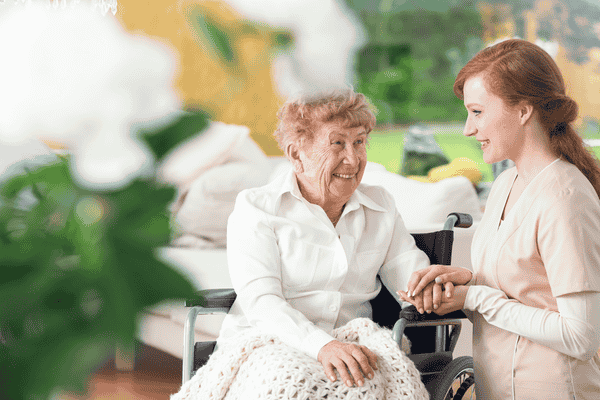As our loved ones age, their care needs often become more complex, leaving families at a crossroads. The decision to seek professional help is never easy, but it’s a crucial step in ensuring the best possible care for those who matter most to us. In this comprehensive guide, we’ll walk you through the essential steps to find the perfect caregiver who will provide not only exceptional care but also peace of mind.
Understanding the Need for a Caregiver
It’s a reality that many families face: the gradual realization that their aging loved ones require more support than they can provide on their own. Perhaps your once-independent father now struggles with daily tasks, or your vibrant mother is becoming increasingly forgetful. These changes can be emotionally challenging to accept, and the idea of seeking outside help might even evoke feelings of guilt.
However, it’s important to remember that recognizing the need for a caregiver is not a sign of failure, but rather an act of love and strength. By prioritizing your loved one’s well-being and acknowledging your own limitations, you’re taking a proactive step towards ensuring they receive the care they deserve. A caregiver can provide invaluable support, from assisting with medication management to offering companionship, allowing you to focus on quality time with your family member.
Sarah, a devoted daughter, shared her experience: “When my mom’s Alzheimer’s progressed, I struggled with the decision to hire a caregiver. I felt like I was letting her down. But once I saw how much the caregiver’s support improved Mom’s quality of life, I realized it was the best choice I could have made for both of us.”
Key Considerations When Choosing a Caregiver
Finding the right caregiver involves more than just checking off a list of qualifications; it’s about discovering someone who will become an integral part of your family’s support system. Two key factors to consider are the caregiver’s professional experience and their personality compatibility with your loved one.
Assessing Qualifications and Experience
When evaluating potential caregivers, it’s essential to look beyond basic certifications and delve into their specific experience. If your loved one has a particular condition, such as Alzheimer’s or Parkinson’s, a caregiver with relevant expertise can make a world of difference. They’ll understand the unique challenges and have strategies to effectively manage symptoms.
It’s also crucial to inquire about their training in emergency situations. Can they perform CPR? Do they know how to respond to a fall? While we hope these scenarios never arise, knowing that your caregiver is prepared can provide immense peace of mind.
Remember, expert caregiving is a blend of medical knowledge, compassion, and patience. During your interactions with potential caregivers, observe how they demonstrate these qualities. Do they listen attentively? Do they show genuine interest in your loved one’s well-being?
Evaluating Personality Compatibility
Finding the right caregiver goes beyond professional qualifications; it’s about discovering someone who complements your loved one’s personality. Is your father a die-hard baseball fan? A caregiver who can engage in spirited discussions about the latest game might be the perfect fit. Does your mother have a green thumb? Someone who shares her passion for gardening could bring joy to her daily routine.
Good communication is the foundation of any successful caregiving relationship. During interviews, pay attention to how the caregiver interacts with your loved one. Are they patient and attentive? Do they make an effort to understand your family member’s unique needs and preferences?
Consider arranging a trial period to observe how the caregiver and your loved one interact in real-life situations. This hands-on experience can provide valuable insights into their compatibility and help you make an informed decision.
Tom, a son who hired a caregiver for his father, shared his experience: “I was hesitant about bringing a stranger into Dad’s home, but when I saw how the caregiver connected with him over their shared love of fishing, I knew I had found the right person. Their bond made all the difference in Dad’s happiness and well-being.”
Methods for Finding the Best Caregiver
With so many options available, finding the perfect caregiver might feel overwhelming at first. However, by utilizing a combination of resources, you can cast a wide net and increase your chances of finding the ideal match.
Leveraging Reputable Agencies
Home care agencies can be an excellent starting point in your search for a caregiver. These organizations handle the professional aspects of the process, such as background checks, training, and scheduling. Reputable agencies like “ComforHome” have rigorous vetting processes to ensure that each caregiver meets high standards before placement.
One of the significant advantages of working with an agency is their ability to provide a replacement caregiver quickly if your regular caregiver is unavailable. This reliability can be a lifesaver for families, alleviating the stress of finding last-minute coverage.
Harnessing the Power of Online Platforms
In today’s digital age, online platforms have revolutionized the way we search for caregivers. Websites like ComforHome allow you to browse caregiver profiles, read reviews from other families, and even conduct video interviews. These innovative tools make it easier to find someone who aligns with your specific needs and preferences.
Imagine discovering a caregiver who not only possesses the necessary skills but also shares your mother’s love for knitting or your father’s passion for World War II history. Online platforms open up a world of possibilities, enabling you to find a caregiver who can truly connect with your loved one on a personal level.
Tapping into Community Resources
Don’t underestimate the power of your local community when searching for a caregiver. Your area’s Agency on Aging can be a goldmine of information, providing referrals to trusted caregivers and offering guidance on navigating the caregiving journey.
Senior centers and local support groups for conditions like Alzheimer’s or Parkinson’s can also be valuable resources. These communities often have bulletin boards where caregivers post their services, and members can provide firsthand recommendations based on their own experiences.
Sometimes, the perfect caregiver might be right in your own backyard. A neighbor or friend might know a trusted individual who is looking for work and would be a great fit for your family. Word-of-mouth referrals can lead to some of the most successful caregiving relationships.
Lisa, a caregiver who found her client through a local support group, shared her story: “When I met Margaret at the Alzheimer’s support group, I instantly connected with her family’s story. I knew I wanted to be a part of their journey and help make a difference in Margaret’s life. It’s been an incredibly rewarding experience.”
Conducting Thorough Background Checks and Reference Checks
Inviting someone into your home to care for your loved one is a significant decision that requires due diligence. Conducting comprehensive background and reference checks is a crucial step in ensuring your family’s safety and peace of mind.
Begin by requesting a criminal background check, which can often be obtained through your local police station. Don’t hesitate to ask for legal documents that verify the caregiver’s eligibility to work. This process might feel awkward, but remember that it’s a necessary precaution to protect your loved one.
Next, dive into the caregiver’s professional history by contacting their previous employers. Ask specific questions about their performance, reliability, and ability to handle challenging situations. This insight can provide a clearer picture of the caregiver’s work ethic and suitability for your family’s needs.
Given the sensitive nature of medical information, it’s essential to ensure that the caregiver understands and respects privacy laws. Discuss your expectations regarding confidentiality and make sure they are willing to adhere to these guidelines.
Throughout the process, trust your instincts. If something feels off or raises a red flag, don’t hesitate to investigate further. Your loved one’s safety and well-being should always be the top priority.
John, a family member who hired a caregiver for his mother, shared his experience: “I was tempted to skip the background check to save time, but I’m so glad I didn’t. It revealed some concerning information that made me realize the caregiver wasn’t the right fit for Mom. Taking that extra step was worth it for my peace of mind.”
Setting Clear Expectations and Maintaining Open Communication
Open and clear communication is the cornerstone of a successful caregiving relationship. It begins with setting well-defined expectations from the very start and continues through ongoing dialogue and collaboration.
Create a detailed job description that outlines the caregiver’s daily tasks, working hours, and any specific respite periods you require. Be transparent about your expectations and don’t shy away from asking important questions. How will the caregiver handle emergencies? What is their policy on overtime? The more clarity you provide upfront, the smoother the caregiving journey will be.
Establish a communication system that works for everyone involved. This might include daily text updates, weekly phone check-ins, or regular family meetings. The goal is to create an environment where both you and the caregiver feel comfortable expressing concerns, sharing feedback, and celebrating successes.
Encourage the caregiver to voice their observations and suggestions. They spend significant time with your loved one and may notice changes in behavior or health that you might miss. Be open to their insights and value their expertise.
Regular check-ins can help prevent small issues from escalating into larger problems. By fostering open lines of communication, you create a supportive environment where everyone feels heard and valued.
Emily, a caregiver who has worked with several families, shared her perspective: “The most successful caregiving relationships I’ve had were built on open and honest communication. When families take the time to listen to my input and share their own thoughts, it creates a true partnership. We’re all working towards the same goal: providing the best possible care for their loved one.”
Building a Positive and Supportive Relationship with the Caregiver
A caregiver is more than just an employee; they become an extension of your family’s support system. Cultivating a positive and supportive relationship with them can have a profound impact on your loved one’s care and overall well-being.
Start by expressing your appreciation for the caregiver’s hard work and dedication. A simple “thank you” or a heartfelt note of gratitude can go a long way in making them feel valued and respected. Recognize their efforts and celebrate the positive moments they share with your loved one.
Include the caregiver in family discussions about care plans and decision-making processes. Their firsthand experience and insights can be invaluable in shaping the best approach for your loved one’s needs. By involving them in these conversations, you demonstrate trust in their expertise and show that their input matters.
Remember that caregivers are human too, and they may have challenging days just like anyone else. Be understanding and supportive if they experience personal difficulties or face tough situations at work. A little empathy can foster a stronger bond and create a more positive caregiving environment.
Encourage the caregiver to connect with other professionals in the field, whether through support groups or online communities. Having a network of peers who understand the unique challenges of caregiving can help prevent burnout and provide valuable resources for problem-solving.
By nurturing a positive relationship with the caregiver, you create a supportive atmosphere that benefits everyone involved. Your loved one receives compassionate care from someone who feels valued and appreciated, and you gain a trusted partner in navigating the caregiving journey.
Maria, a caregiver who has formed close bonds with her clients’ families, shared her experience: “When I feel like I’m truly part of the family, it motivates me to go above and beyond in my caregiving role. Knowing that my efforts are appreciated and that I have the family’s support makes all the difference in the world.”
Conclusion
Finding the perfect caregiver for your loved one is a journey that requires careful consideration, thorough research, and open communication. By following these essential steps, you can make an informed decision that ensures the best possible care for your family member while providing you with peace of mind.
Remember, it’s okay to take your time and trust your instincts throughout this process. Building a strong support system and practicing self-care are crucial aspects of the caregiving journey. Don’t hesitate to seek professional advice or join support groups for additional guidance and emotional support.
Your dedication and efforts in finding the perfect caregiver will lead to a more comfortable and secure environment for your loved one. Stay positive, remain patient, and know that your love and commitment will make a world of difference in ensuring the highest quality of care for those who matter most to you.
As Maya Angelou once said, “People will forget what you said, people will forget what you did, but people will never forget how you made them feel.” By finding a caregiver who not only meets your loved one’s physical needs but also connects with them on an emotional level, you’re giving them the greatest gift of all: the feeling of being truly cared for and valued.





